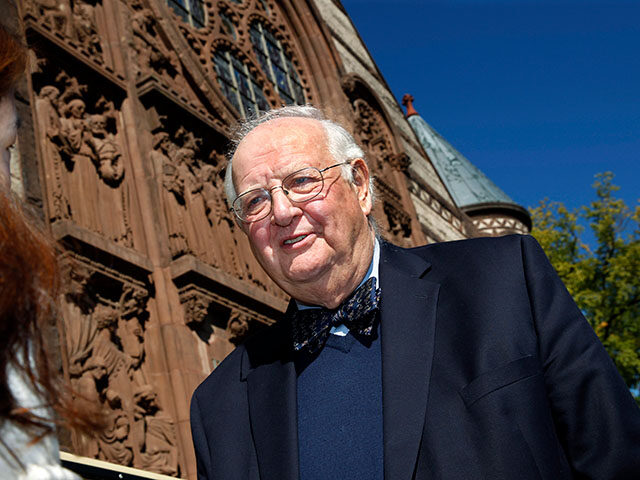Migration and free trade impose huge unrecognized costs on ordinary people, says a Nobel-awarded Princeton economist who previously supported the unpopular, elite-backed policies.
“I used to subscribe to the near consensus among economists that immigration to the US was a good thing,” Professor Angus Deaton wrote in a post for the International Monetary Fund. He continued:
Longer-term analysis over the past century and a half tells a different story. Inequality was high when America was open [to migration], was much lower when the borders were closed [to migrants], and rose again post Hart-Celler (the Immigration and Nationality Act of 1965) as the fraction of foreign-born people rose back to its levels in the Gilded Age.
On free trade, he wrote:
I also no longer defend the idea that the harm done to working Americans by globalization was a reasonable price to pay for global poverty reduction because workers in America are so much better off than the global poor …
I had also seriously underthought my ethical judgments about trade-offs between domestic and foreign workers. We certainly have a duty to aid those in distress, but we have additional obligations to our fellow citizens that we do not have to others.
Deaton is an English-born, 78-year-old retired academic economist. One of his major accomplishments was naming the unrecognized rise in early deaths among discarded Americans as “Deaths of Despair.” His 2015 invention of the term helps politicians and people to understand why so many Americans are dying at young ages.
Deaton also recognizes the gains for ordinary Americans when migration is curbed, as it was from 1925 until the 1980s. In his post, for example, he wrote:
It has also been plausibly argued that the Great Migration of millions of African Americans from the rural South to the factories in the North would not have happened if factory owners had been able to hire the European migrants they preferred.
Breitbart News has also helped spur public debate by naming aspects of U.S. immigration policy.
Deaton also used his post to criticize his fellow academic economists for putting economic efficiency above fairness and civic stability. “Efficiency is important, but we valorize it over other ends,” he wrote, adding:
when efficiency comes with upward redistribution—frequently though not inevitably—our recommendations become little more than a license for plunder. Keynes wrote that the problem of economics is to reconcile economic efficiency, social justice, and individual liberty. We are good at the first, and the libertarian streak in economics constantly pushes the last, but social justice can be an afterthought.
“Our emphasis on the virtues of free, competitive markets and exogenous technical change can distract us from the importance of power in setting prices and wages, in choosing the direction of technical change, and in influencing politics to change the rules of the game,” he wrote.
2015 Nobel Prize winner in Economics for his analysis on consumption, poverty, and welfare, and the person to coin the term ‘deaths of despair’ with his wife (also an economist), Sir Angus Deaton has now changed his tune on immigration and believes it’s creating great inequality. pic.twitter.com/vCcGhkYShK
— U.S. Tech Workers (@USTechWorkers) March 11, 2024
Deaton’s late-career change of mind will not impact investors’ demands for more migrant workers, consumers, and renters. But it may help other economists and experts look beyond the immigration PR produced by investors and their allies.

COMMENTS
Please let us know if you're having issues with commenting.